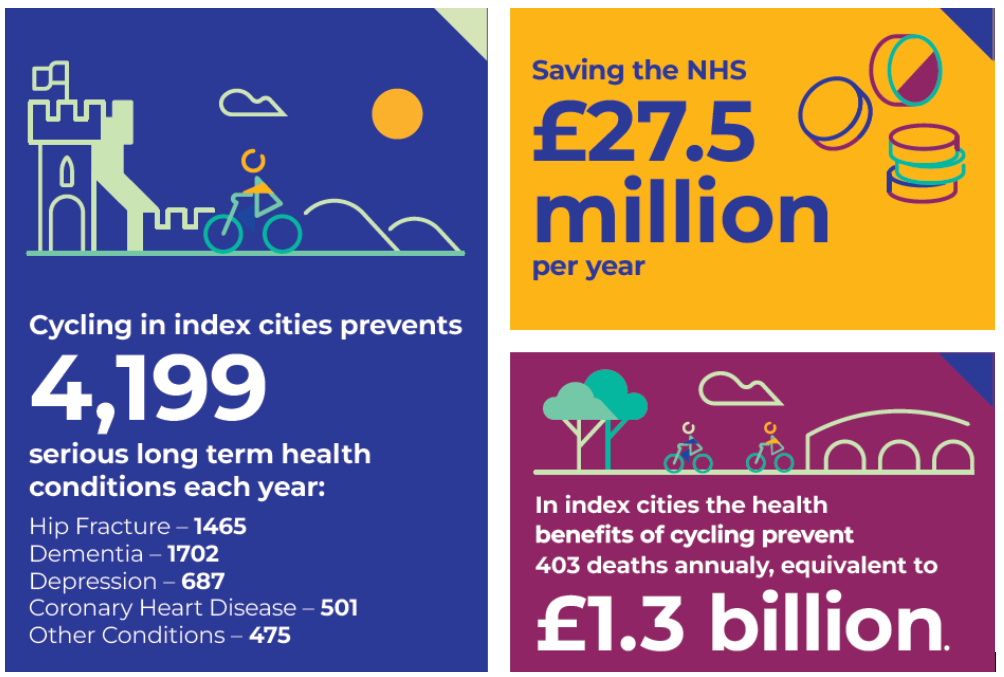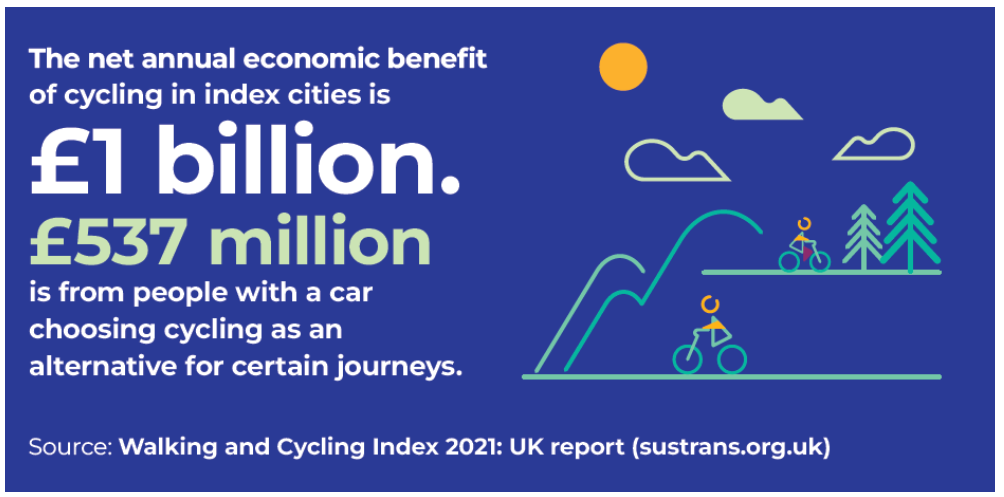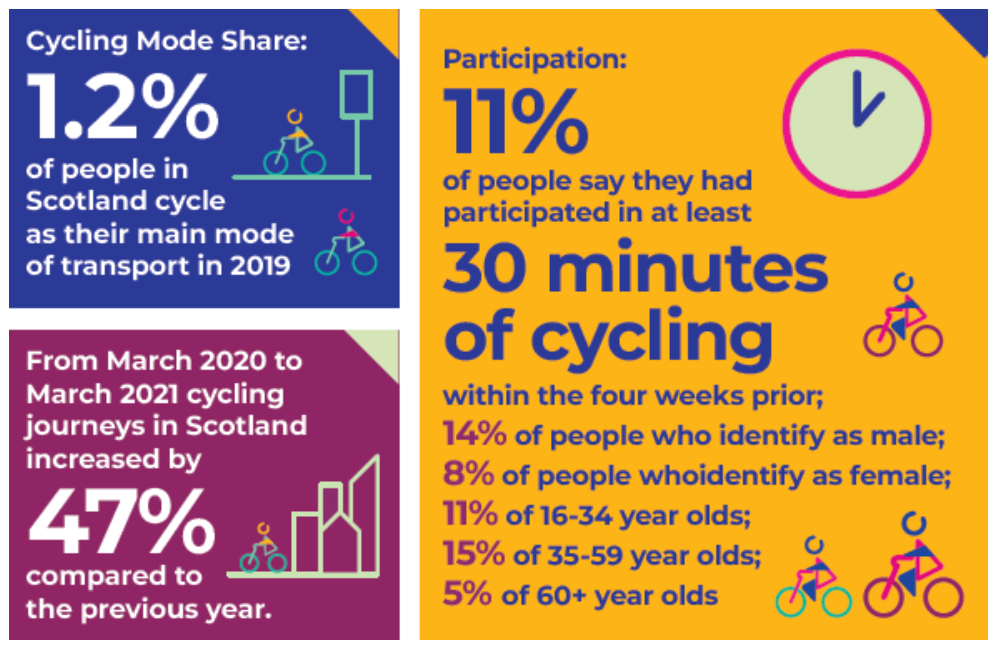Context
Cycling is good for your health. It is a low-impact, aerobic exercise, great for your heart and lungs as well as for maintaining a healthy weight. Regular cycling can help reduce anxiety, stress and depression. Increased rates of cycle use as an alternative to the car brings wider health benefits from improved air quality, reduced road danger and increased community cohesion.
People cycle for various purposes – for sport, leisure, tourism, commuting and other everyday journeys. For example, someone who cycles for leisure may also commute to work and may have the potential to commute to work by bike. All types of cycling journeys make people more active and can contribute to improving their health and wellbeing.
According to the Sustrans Walking and Cycling Index 2021, cycling in index cities prevents 4,199 serious long term health conditions each year. This saves the NHS £27.5 million per year. In index cities the health benefits of cycling prevent 403 deaths annually, equivalent to £1.3 billion.

Cycling is an efficient, green and generally affordable mode of transport. It supports local retailers and is a multi-billion pound industry. Cycling brings wider opportunities too, including major sporting and leisure events which create economic benefits and inspire more people to participate in cycle-sport and recreational cycling. Increased demand for bikes and bike maintenance creates opportunities for innovation and job creation, reuse and recycling and contributing to the green recovery.
The increasingly urgent need to address both the impacts of climate change and physical inactivity make it essential that the Framework outlines ambitious strategic themes and actions that will contribute to giving people opportunities to reduce car use and the resultant health costs and climate impacts.
The net annual economic benefit of cycling in index cities is £1 billion. £537 million of which is from people with a car choosing to cycle as an alternative for certain journeys.

Investment in other sectors such as tourism, world class sport and major cycling events may lead to behavioural change towards cycling for active travel. For example, the UCI Cycling World Championships which will be hosted in Scotland for the first time in 2023 will highlight the positive policy impacts that cycling can have. The number of school age children participating in either recreational cycling or cycling for sport may have a long-term impact on the level of cycling when they are adults. Engagement with the fullest range of people can therefore support more cycling for everyday journeys. This framework will set out how the Scottish Government and our partners will engage with the widest range of people, making cycling for transport truly accessible for all.
Enabling inclusive access to cycling is fundamental to the success of the Framework, especially to protect communities and groups whose incomes limit access to cars and to enable everyone to take advantage of better access to employment, education, leisure and healthcare. It is acknowledged that there is a need for both direct on-road infrastructure and off-road quiet routes to take account of diverse concerns about personal safety and to account for local need.
During the COVID 19 pandemic, we witnessed the impact on travel behaviour of the introduction of “Spaces for People”, temporary segregated cycling infrastructure across Scotland. This illustrated the potential for more people to cycle for their everyday journeys, making them more active, happier and able to take advantage of local amenities. COVID-19 impacted on travel behaviour with levels of cycling higher than during the June 2019 baseline period for much of the first six months of the pandemic from April 2020.
According to the Cycling Scotland Annual Cycling Monitoring Report, 1.2% of people in Scotland cycle as their main mode of transport in 2019. From March 2020 to March 2021, cycling journeys in Scotland increased by 47% compared to the previous year. 11% of people say they had participated in at least 30 minutes of cycling within the four weeks prior.

Although the Spaces for People programme was largely successful, it didn’t work for everyone, particularly those with accessibility requirements, and some schemes were unpopular locally. This Framework seeks to acknowledge the successes of Spaces for People, but also demonstrate that lessons have been learned.
Cycling Scotland’s nationwide monitoring survey showed that numbers of cycling journeys recorded in the traffic surveys in May 2020 had trebled compared to the previous year. Reduced traffic, quieter streets and increased cycling road space have given more people the opportunity to experience the benefits of active travel on their physical and mental health.
< Previous | Contents | Next >